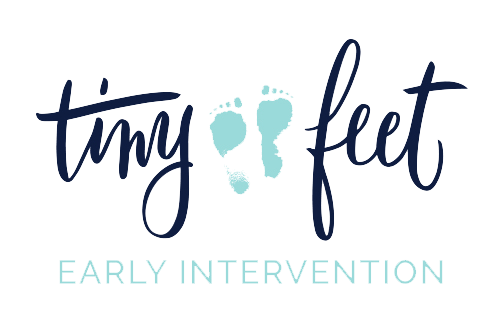I am very excited about our new 4-part blog series- "Play & Learning"! Why are we dedicating an entire series to play? Because children learn through play! Learning and play are not two separate activities for the child but instead, inextricably intertwined. I hope you'll follow us as we discuss over the coming weeks: some things to know (this week), how to think through picking the right toy, strategies for using the toys you have, and where to find toys! This is truly a fun topic to explore!
"Play is often talked about as if it were a relief from serious learning. But for children play is serious learning. Play is really the work of childhood." -Fred Rogers
Some Important Things to Know About Play
"Play is not some touchy-feely activity."
- Maria Montessori said, "Play is the work of the child." How true this is! We've all seen kids deeply engaged in an activity, putting in their all to problem solve, accomplish a task, or try something new! My 3-year-old son can often be caught furrowing his brow or sticking out his tongue in deep concentration during play.
- "Children learn through play"
- According to Fromberg and Gullo (1992), play enhances language development, social competence, creativity, imagination, and thinking skills. Frost (1992) concurred, stating that "play is the chief vehicle for the development of imagination and intelligence, language, social skills, and perceptual-motor abilities in infants and young children" (p. 48). (Fox)
- Play develops the "whole child."
- Fine Motor: From a baby learning to point, to a toddler learning to turn a page, these develop the muscles in fingers that will soon lead to hold a pencil, imitating lines, and writing letters!
- Gross Motor: From a baby rolling over to running across the room while holding a book, play leads to the development of gross motor skills.
- Language Skills- As children explore objects during play, they learn vocabulary (i.e. the names of the fruits & vegetables with their kitchen set).
- Social- Children learn to express their wants and needs verbally during play, developing social skills.
- All of these skills come together, helping develop cognition and the child's understanding of the world.
- Play is a very broad term. Regardless, all forms of play are beneficial in the development of a child.
- Who? Play may take place individually, with a partner, or with a group. Play can happen with a parent and child or a child with his/her peers.
- What? Play can include toys or be as basic as a Mother and her baby smiling reciprocally.
- Where? Play can take place outside at the park or in your backyard, but it can also take place indoors during bath time, while reading a book, or playing with toys on the floor.
- Play is healthy and reduces stress! (Bongiorno) Research shows this and parents across America know it intrinsically.
Side note for the early childhood professionals out there: We are using the term "play" in a broad sense for this blog series (includes direct instruction and free-play unless otherwise noted).
Sources:
Bongiorno, L. (n.d.). 10 Things Every Parent Should Know about Play. Retrieved January 12, 2017, from https://families.naeyc.org/learning-and-development/child-development/10-things-every-parent-should-know-about-play
Fox, J. E. (n.d.). Back-to-Basics: Play in Early Childhood. Retrieved January 12, 2017, from http://www.earlychildhoodnews.com/earlychildhood/article_view.aspx?ArticleID=240







